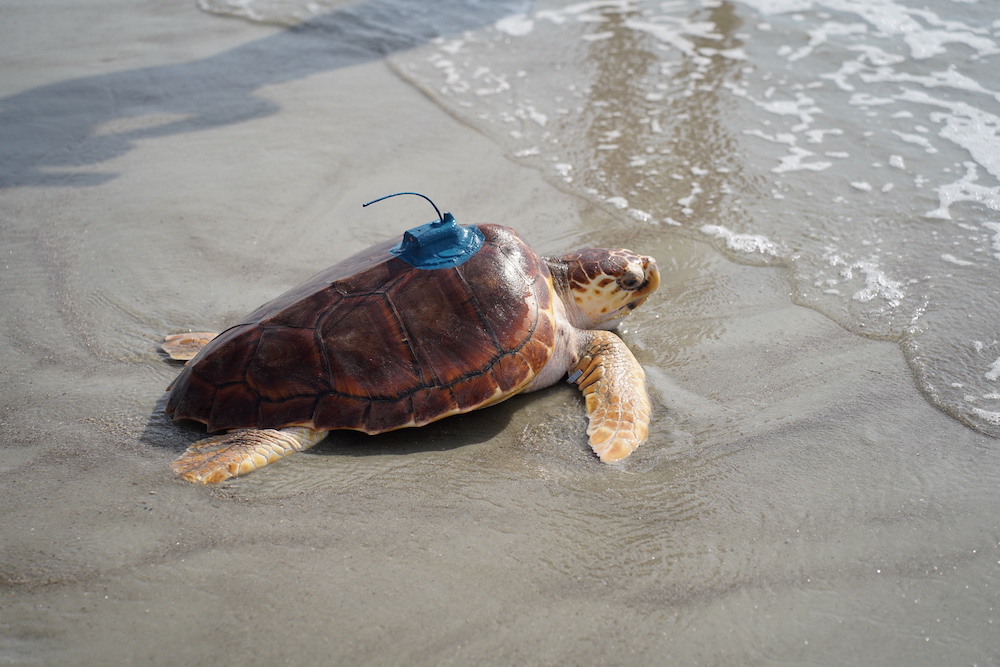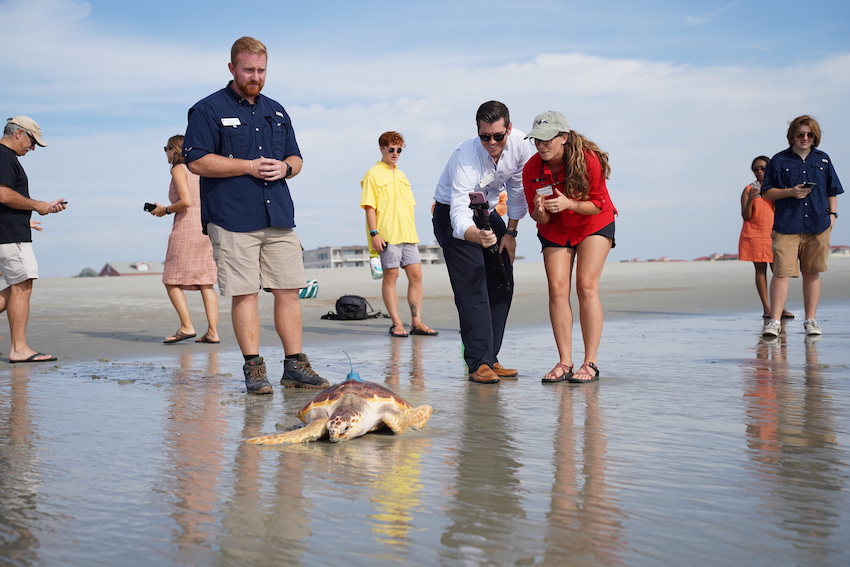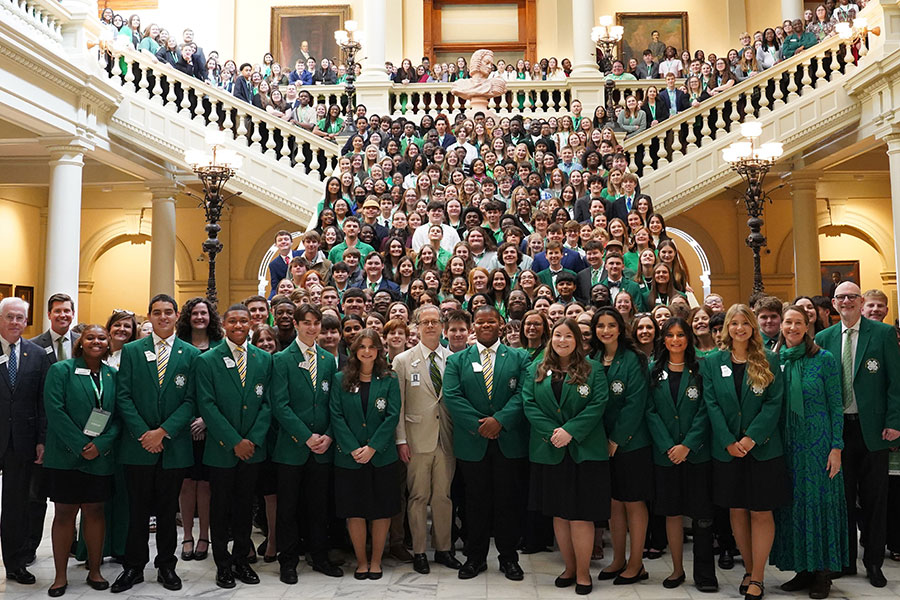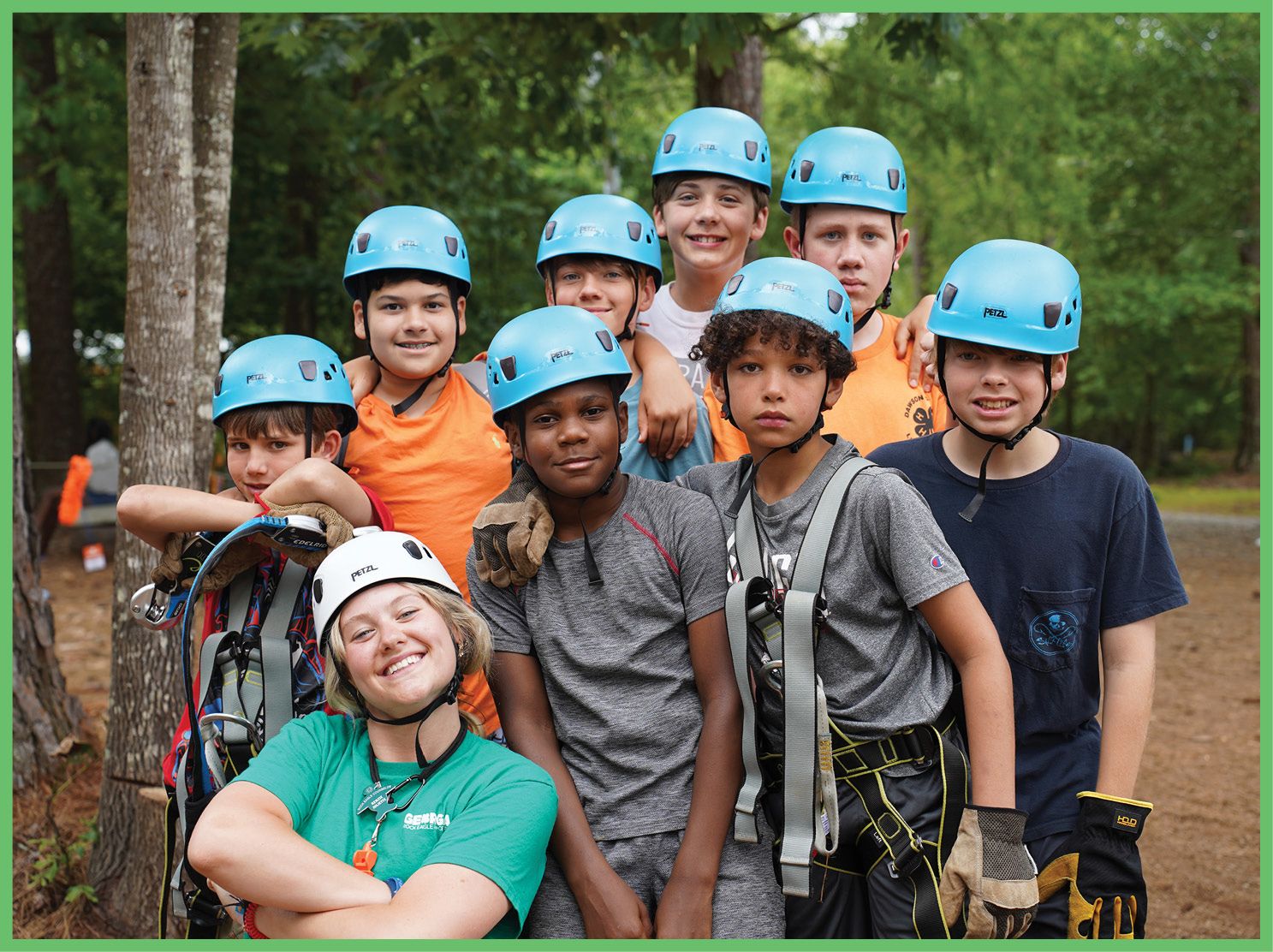
A loggerhead sea turtle named Belle has returned to her natural habitat in the Atlantic Ocean after five years as a resident of Burton 4-H Center on Tybee Island. Equipped with a tracking device attached to her shell to monitor her journey back to the sea, Belle was released on a Tybee Island beach on Sept. 7 with a send-off from the 4-H center staff and volunteers.
Environmental Education staff at the Burton 4-H Center care for sea turtles that do not successfully make their initial voyage to the ocean as hatchlings through a partnership with the Georgia Department of Natural Resources, which grants permits and permission for these stragglers to be raised at the center until they are ready to live in the wild on their own.
Belle was 3 inches long and weighed just a few ounces when she came to Burton in 2017 and she has been an important part of Environmental Education programs for thousands of Georgia youth.
She was about 52 pounds prior to her release and approximately 20 inches in length.
Visitors to Burton 4-H Center learn about the habitat, diet, life cycle and characteristics of sea turtles, thanks to Belle and other turtles who grow up at the center.
“We usually have sea turtles at various life stages as residents of the center, so students and other guests can observe and learn about them at different points in their development,” said Erine-Fay McNaught, Environmental Education program coordinator at Burton 4-H Center. “It is always our goal for these turtles to return to the ocean and live out their days in their natural habitat.”
GulfStream Aerospace Corporation, a supporter of Georgia 4-H programming, donated the funding to purchase, install and monitor the tracking device that will deliver data on Belle’s whereabouts over approximately 18 months. Signals are sent from the whip antenna on the tracker to satellites when she surfaces to breathe long enough for both copper posts on the tracker to clear the water.
The collected data will be used by teachers and environmental educators to demonstrate the habits of sea turtles to their classrooms. Belle’s progress can be tracked at wildlifecomputers.com.

The longevity and effectiveness of the tracker can be impacted by turtle behavior and environmental factors. Choppy water and rainy weather can prevent signals from reaching satellites. The tracker can be damaged or knocked off the turtle by reefs and other obstructions in the water that the turtle might encounter.
“Even with these challenges, we have a great opportunity here to follow Belle and learn more about the behavior of loggerhead sea turtles in the wild,” said Paul Coote, director of Burton 4-H Center. “We would not have been able to have this opportunity without the generous support of Gulfstream. We so appreciate their support of our efforts to engage and educate the youth of Georgia and everyone else following this project virtually.”
The Georgia 4-H Environmental Education program is available from September through May at six Georgia 4-H facilities every year, providing opportunities for high-quality day and overnight educational experiences. The research-based curriculum correlates to the Georgia Standards of Excellence, providing hands-on learning in the context of the real world.
Georgia 4-H empowers youth to become true leaders by developing necessary life skills, positive relationships, and community awareness. As the largest youth leadership organization in the state, 4-H reaches more than 225,000 people annually through University of Georgia Cooperative Extension offices and 4-H facilities.
For more information about Georgia 4-H and the Georgia 4-H Environmental Education program, contact your local UGA Extension office or visit georgia4h.org/ee.






